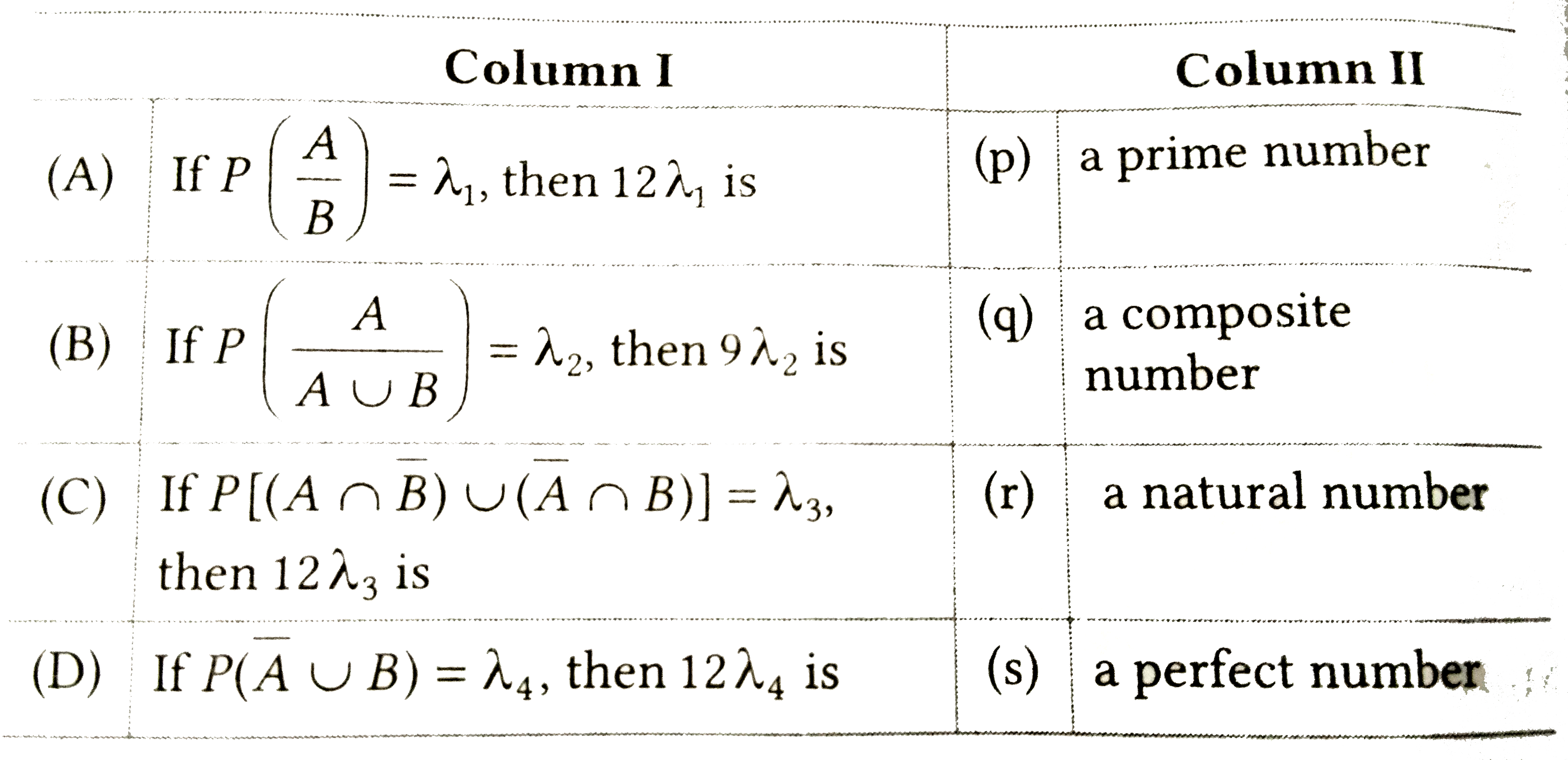If A and B are two independent events, then P( A and B)=P(A)⋅P(B)
Step by step video & image solution for If A and B are two independent events, then P( A and B)=P(A)cdotP(B) by Maths experts to help you in doubts & scoring excellent marks in Class 12 exams.
Updated on:21/07/2023Similar Questions
Knowledge Check
If A and B are independent events thenP(A∩B) is equal to
AP(A)+P(B)BP(A)−P(B)CP(A).P(B)DP(A)P(B)If A and B are two independent events with P(A) =13andP(B)=14 , then P(B/A) is equal to
A14B13C34D1If A and B are two independent events with P(A)=35andP(B)=49 then P(A∩B) is equal to:
A415B845C13D29
If A and B are two independent events, such that P(A)=13andP(B)=14.

View SolutionIf A and B are two independent events such that P(A)=12 and P(B)=15 then which of the following is correct ?
View SolutionIf P(¬ B)=0.65, P(A∪B)=0.85, and A and B are independent events then find P(A).
View SolutionIf A and B are two independent events, prove that P(A∪B).P(A'∩B')≤P(C), where C is an event defined that exactly one of A and B occurs.
View SolutionIf A and B are two independent events, prove that P(A∪B).P(A'∩B')≤P(C), where C is an event defined that exactly one of A and B occurs.
View Solution
